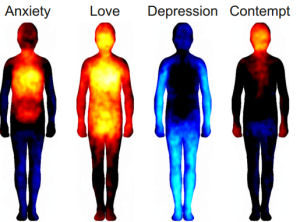Transforming ‘Workplace Illness’ Into ‘Workplace Wellness’
Illness
Everyone gets sick sometimes, but workplace illness has a huge cost attached to it. Many people find that they are able to stay well enough to function (barely) during the work week, only to collapse with exhaustion in the weekends and when they finally go on holiday.
Keeping well means that not only can you work effectively, but that you can enjoy your weekends and time off without collapsing.
With “Workplace Wellness”, our aim is to improve your overall immune response and to give support for acute situations such as the common cold and gastro bugs to get you back on your feet quickly so you can get back to work, and enjoy your downtime as well.
We do this by establishing your level of wellness and working to improve this through simple lifestyle changes (diet, sunshine, exercise and fresh air), and quality supplementation to support better immunity; both acute and chronic.
Note: Acute means it is happening right now eg, a common cold or gastro bug. Chronic means that you have been unwell for a while or are finding it hard to recover from an illness.
Chronic illnesses also include diagnosed conditions such as Chronic Fatigue, Autoimmune conditions etc).
Stress
Everyone responds to stress differently. This is due to our nature and how we’ve been taught to deal with stress through our cultural, personal, social and experiential development, and what level of support we receive to help us with our stress.
Not all stress is bad, it keeps us sharp, and what one person may find stressful, another may find normal or even fun, eg, Bungee jumping may be fun for some and stressful for others.
Causes of stress can include:
- Interpersonal relationship problems
- Financial pressure
- Work or study pressures
- Personal or family illness
- Grief / loss
- Traumatic events
- Job loss / insecurity
- Conflict (e.g. bullying or harassment)
Signs of stress can include:
- Sleeplessness (wakeful or disturbed sleep)
- Unrefreshed sleep (or over sleeping)
- Moodiness
- Lack of motivation
- Over susceptibility to illness
- Physical symptoms: Headaches / Jaw tension / Shoulder tension / Heart palpitations
- Lack of concentration
- Feeling overwhelmed or anxious
- Not coping with normal demands or responsibility
And may lead to:
- Reliance on alcohol or other substances to cope
- Increased eating, drinking or nervous habits
How can we help:
We are trained to assess the level and effects of stress and offer nutritional, supplemental and practical solutions to make coping with stress a more natural process.
What can you do for yourself:
- Find someone to talk to, or write in a journal to help release negative feelings.
- Visit a health professional for a general wellbeing check
- Exercise helps to release endorphins (a chemical response to promote positive feelings). Note: Do not over exercise.
- Limit stimulates such as alcohol, caffeine and nicotine as they may increase anxiousness and sleeplessness
- Find some time to relax and do things that you love (hobbies, sport, reading)
- Try to replace a negative thought with a positive one
- Be grateful for small things (the sun, a friend, a friendly gesture)
- Smile and laugh (if necessary “fake it till you make it”)
- Seek medical help if you feel you may be suffering adversely or overtly from anxiety or feelings of depression.






